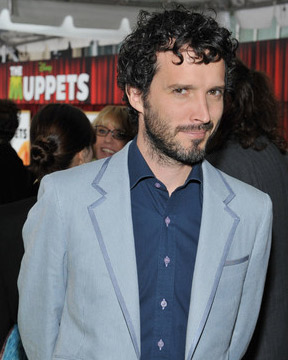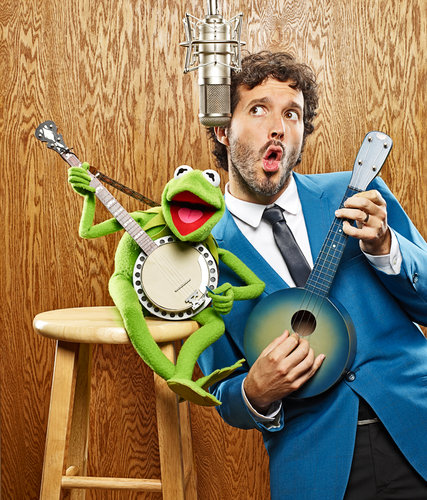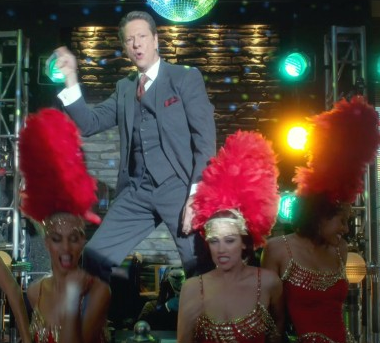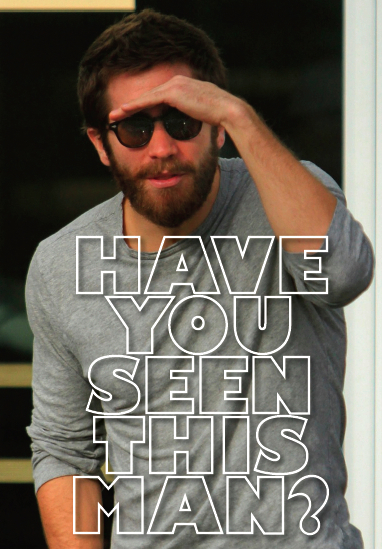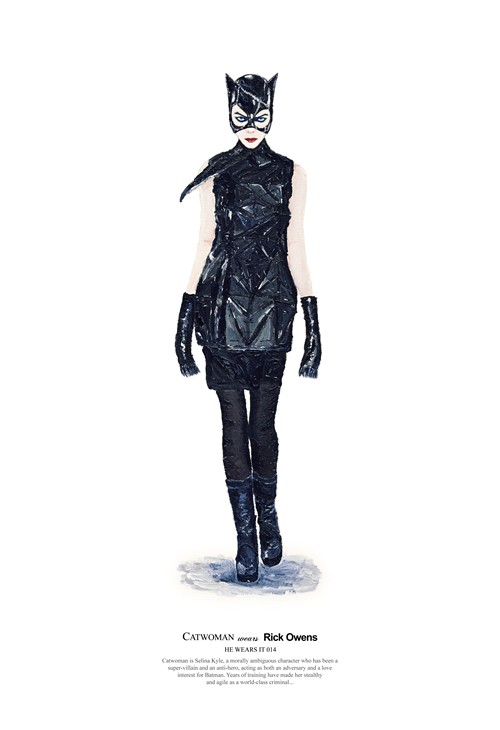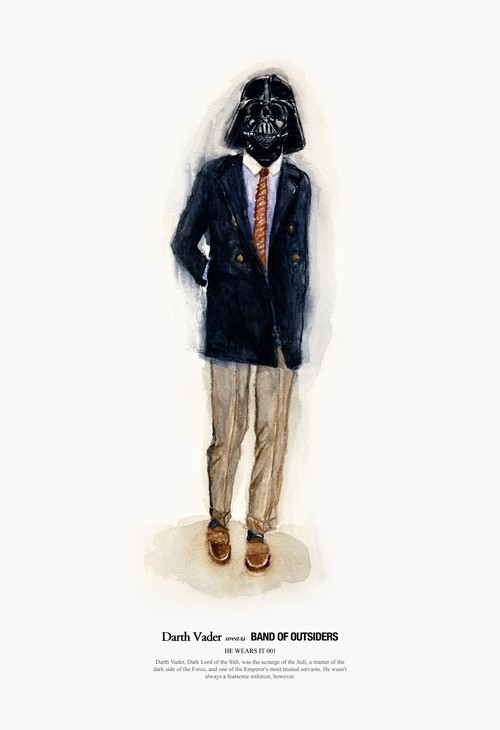BAFTA's Narrow "Rising Star" Field
 Wednesday, January 11, 2012 at 8:34AM
Wednesday, January 11, 2012 at 8:34AM I don't even know why I'm posting this. BAFTA seems determined to be the least respectable awards group this side of "People's Choice". They apparently use a partially celebrity juru to select their 5 wide Orange Rising Star category from a field of 8. Ouch! Then the public gets to vote. NoooOOoooo THE DREAD PEOPLE'S CHOICE.
Which means it's another one of those torture devices like Oscar finalist lists for celebrities or movie hopefuls where less than half of the field have to be jettisoned to get the nominee list. "Congratulations. You were the last kid picked for the team. i.e. you weren't picked. Loser!" This year's losers are all buzzy actresses: Jennifer Lawrence, Felicity Jones, and Jessica Chastain.
The official sausage party nominees...
I've added what they'd done lately though the award is for the person and not a specific work.
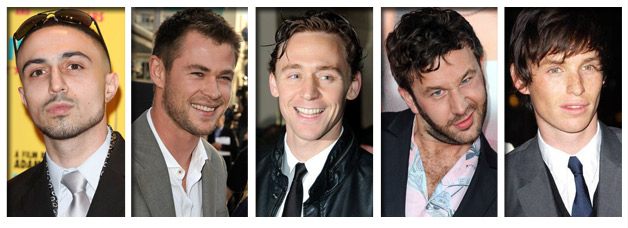
- Adam Deacon (actor/rapper/director) ...Kidulthood, Adulthood, Anuvahood
- Chris Hemsworth (actor/Avenger) ... Thor
- Tom Hiddleston (actor/god) ... Thor, War Horse, Deep Blue Sea
- Chris O'Dowd (actor/comedian) ... Bridesmaids, "the It Crowd"
- Eddie Redmayne (actor/actor) ... My Week With Marilyn, "Red"
I was about to say "who would you vote for?" but it seems like more of a do, dump or marry? type field since it's such a tiny range of types -- all British or Australian guys born between 1979 and 1983! (I don't want to talk about how lame it is to not even consider the Weekend boys for this honor in honor of people who are already a lot more famous. "Rising star" is like "Breakthrough" in how much leeway it gives you to award people whose careers are already somewhat made. What is with the Brits and Weekend? They can't see its worth and it's right in front of them!)
But back to the RISING STARS: Who do you think gets an Oscar nomination first and second and never?
Why do you think Jessica, Felicity, and Jennifer just weren't good enough for the jury of industry types which included the likes of Simon Pegg, Sienna Miller and Harry Potter director David Yates?



